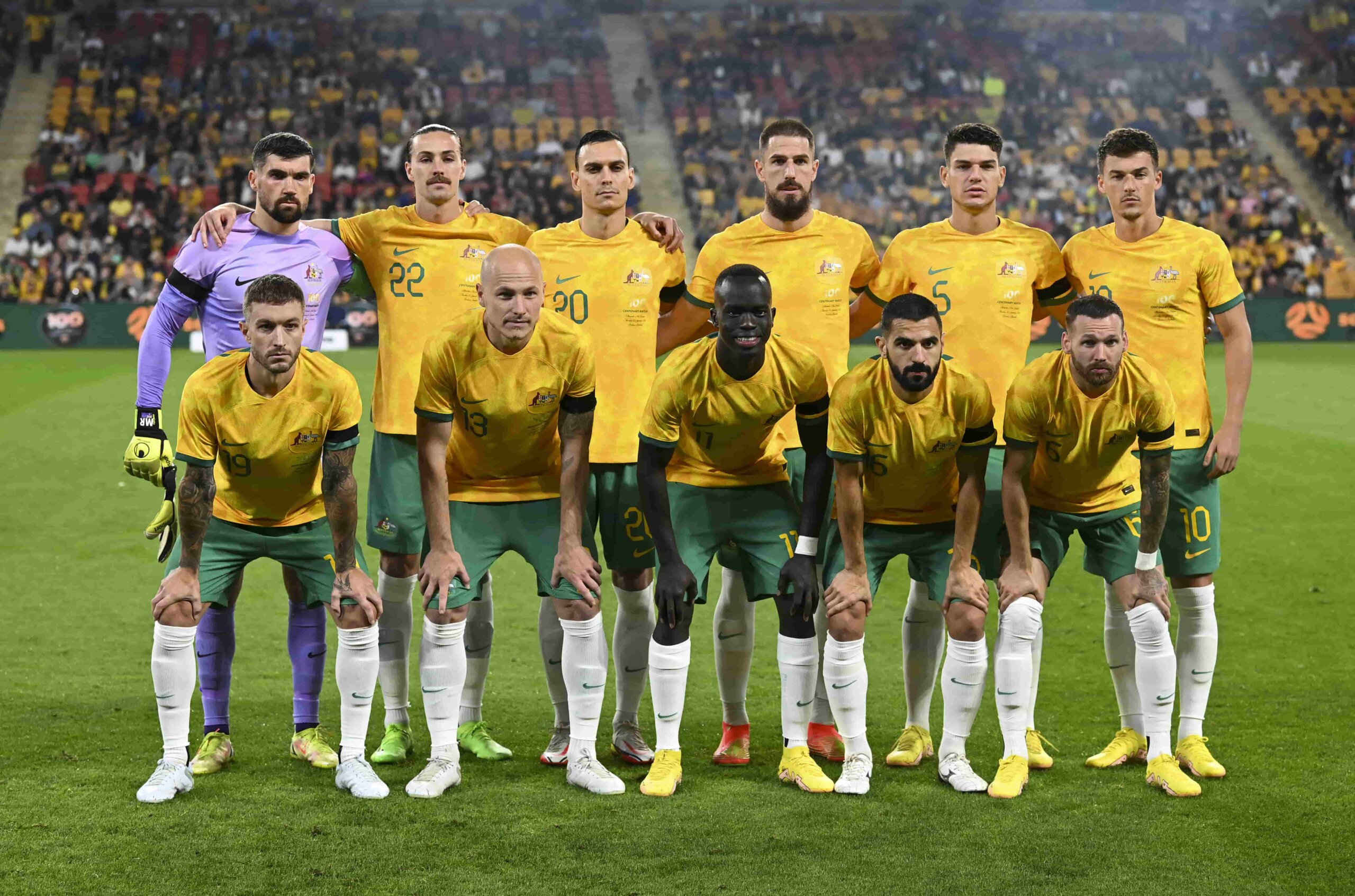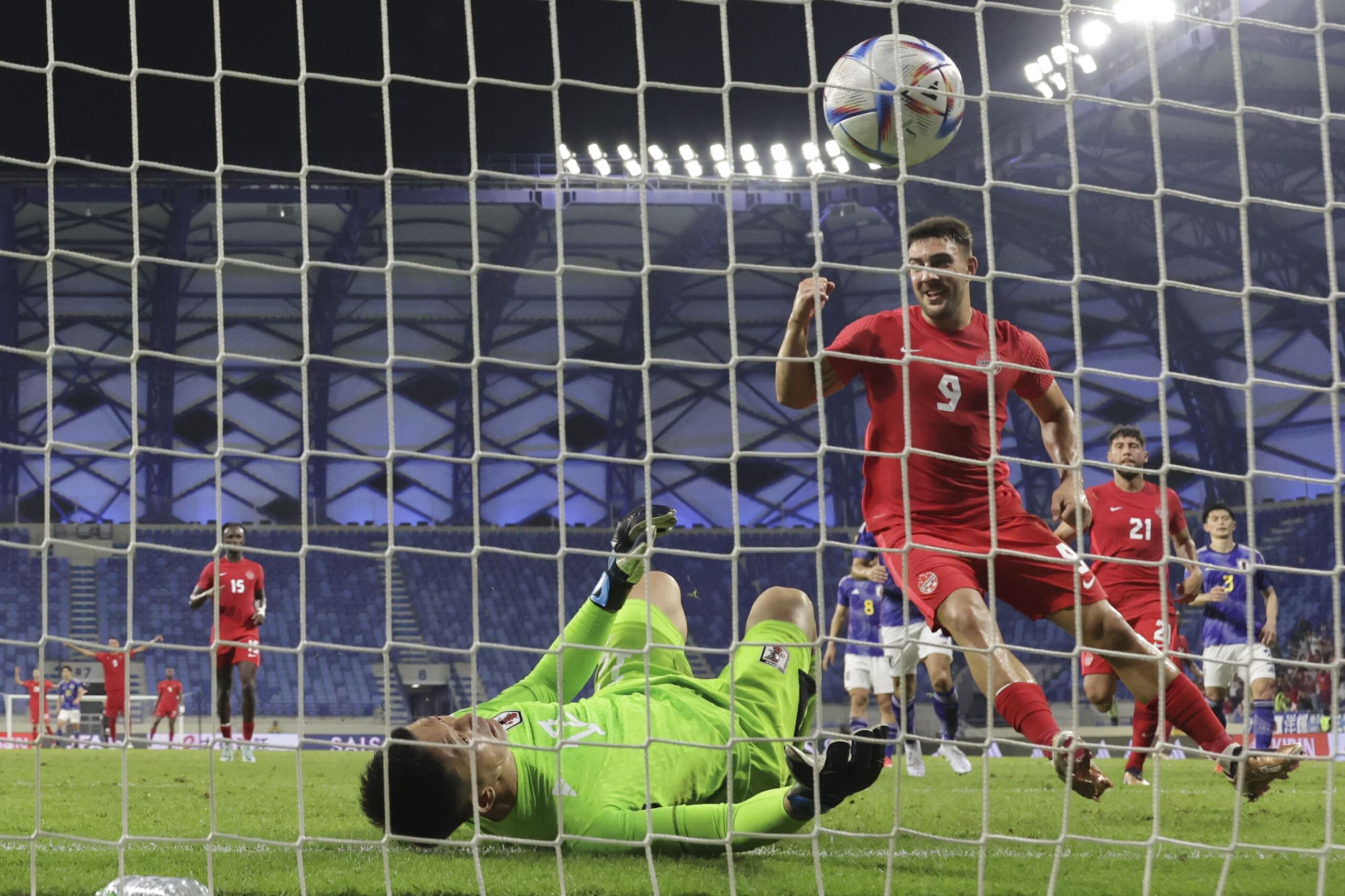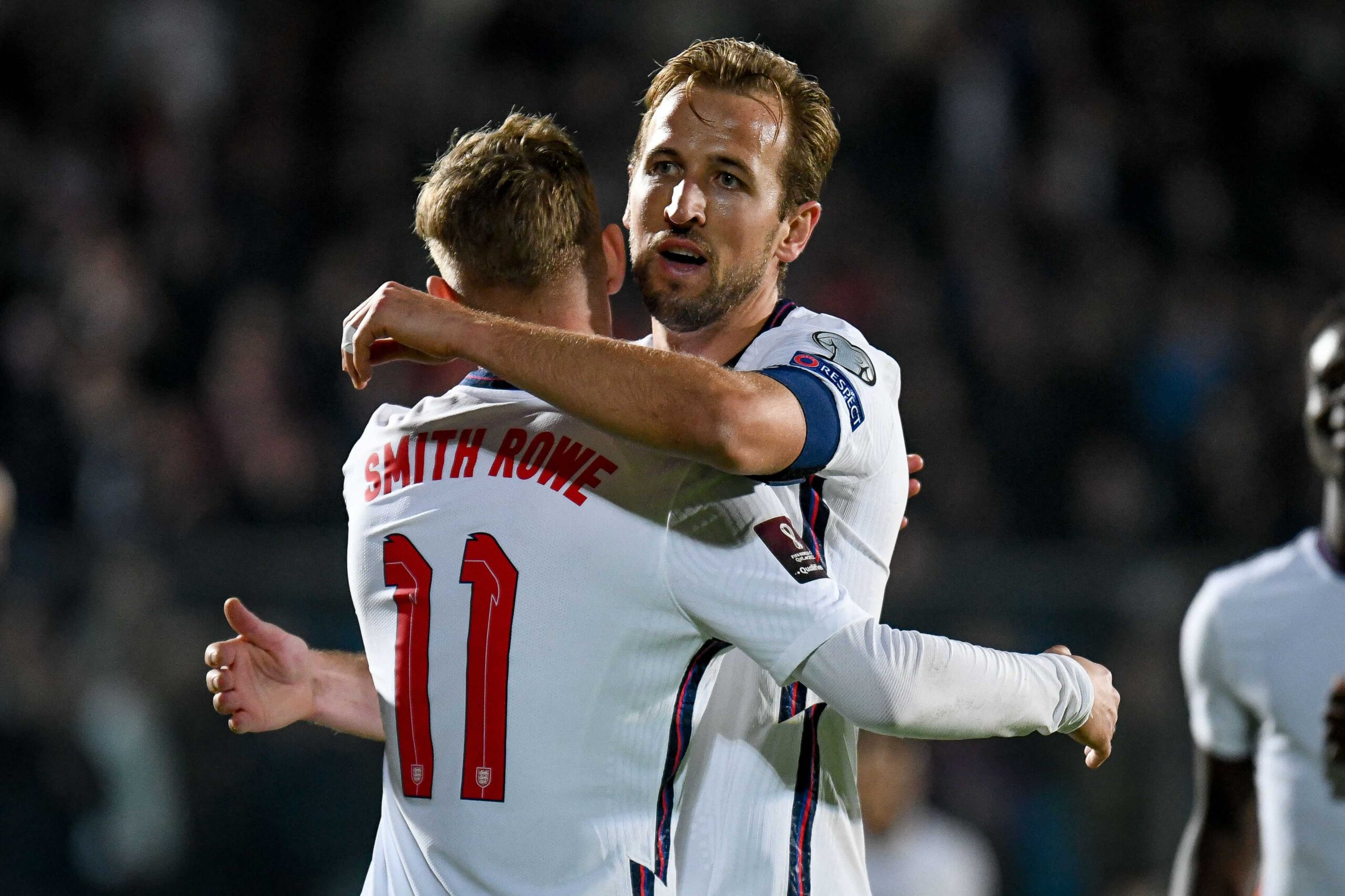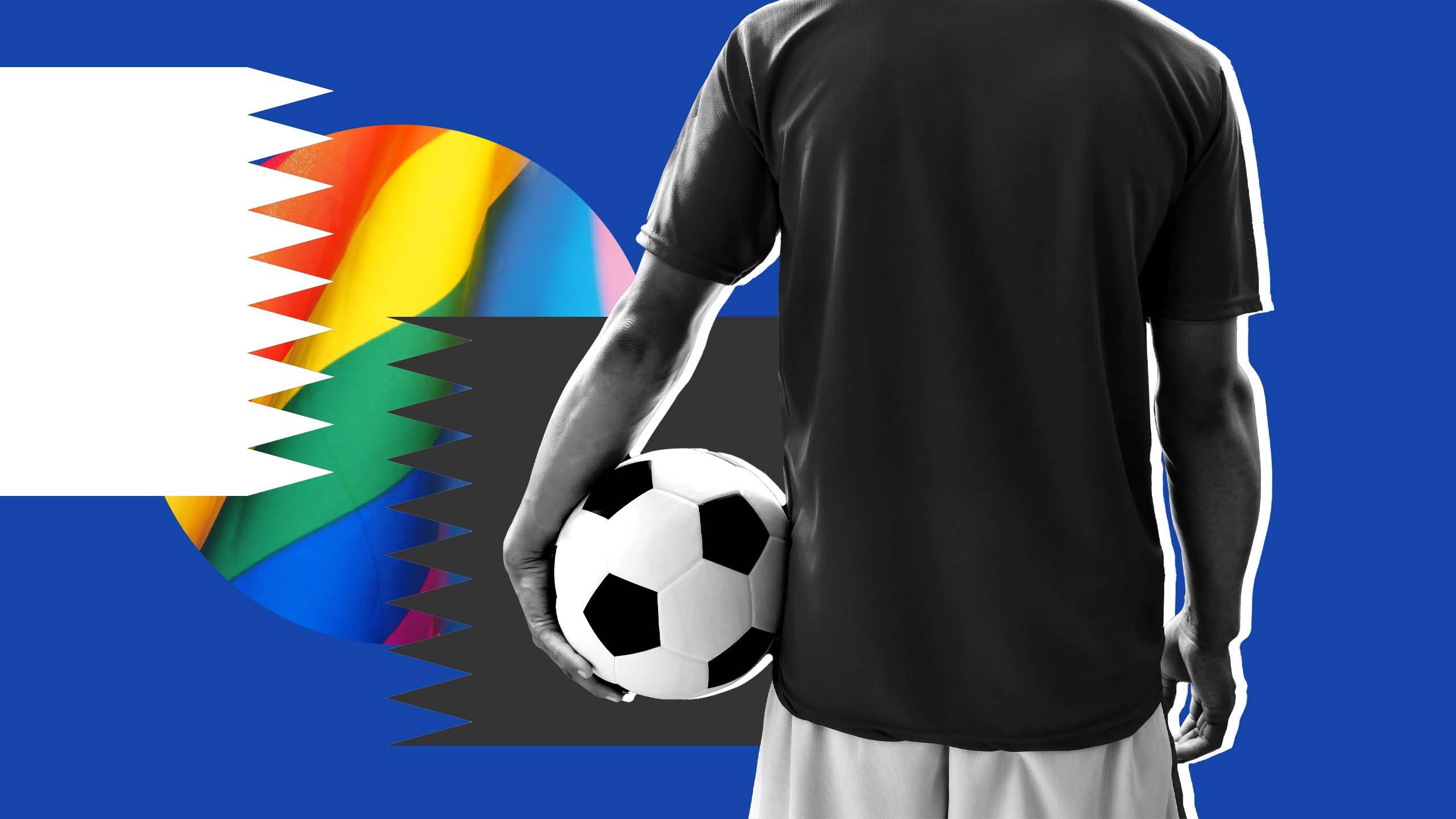In the lead-up to the 2022 men’s FIFA World Cup, LGBTQ+ organizations and queer soccer fans around the world have decried host country Qatar’s record on human rights. As the games begin, soccer teams and players are using the competition as a platform to protest the country’s policies and make a statement.
Consensual sexual relations between two men is punishable by up to seven years imprisonment, and “enticing” men to “commit sodomy” is punishable by one to three years in prison, under the country’s Penal Code. It is also possible for queer Muslim men to be receive the death penalty under the country’s hardline cultural interpretation of Shariah law, though there are no well-publicized cases of this happening.
Arbitrary detention of LGBTQ+ individuals is common, happening as recently as September. And queer or trans Qataris have been coerced into outing other LGBTQ+ people to the government to avoid torture, according to The Guardian.
Human rights organizations Amnesty International and Human Rights Watch say the country also exploits migrant workers, discriminates against women and severely limits freedom of expression.
Although there are no out players in any of the teams competing in the men’s World Cup this year, LGBTQ+ tourists visiting the country will be subject to the country’s laws.
While not all of the 32 teams competing in the World Cup are speaking out, some are using the event to raise awareness of Qatar’s discriminatory laws.
Australia

Credit: Dan Peled/AP Photo
A video posted last week shows 16 members of Australia’s national team, the Socceroos, listing human rights abuses in Qatar.
“As players, we fully support the rights of the LGBTI+ people. But in Qatar, people are not free to love the person that they choose,” says one member of the team.
Another says the team stands with organizations who are seeking reforms in Qatar. “This must include … the decriminalization of all same-sex relationships. These are the basic rights that should be afforded to all.”
Human Rights Watch praised the message as showing “exemplary leadership.” Qatar World Cup organizers responded to the video by claiming, “No country is perfect.”
Canada

Credit: Christopher Pike/AP Photo
Canada has not posted any public statements condemning Qatar’s human rights abuses, and Canadian Soccer did not respond to a request for comment. Canada’s women’s national team is home to a number of high-profile queer and trans players including Kadeisha Buchanan, Stephanie Labbé, Kailen Sheridan, Erin McLeod and Quinn.
Denmark
In September, Denmark unveiled a new series of faded team jerseys in protest of Qatar’s human rights abuse record. The three kits are monochromatic, with all-red, all-white and all-black strips available. Features such as the national team badge and decorative chevrons are barely visible.
“While we support the Danish national team all the way, this shouldn’t be confused with support for a tournament that has cost thousands of people their lives,” kit manufacturer Hummel wrote in an Instagram caption. “We wish to make a statement about Qatar’s human rights record and its treatment of the migrant workers that have built the country’s World Cup stadiums.”
Denmark also requested to wear shirts reading “Human Rights for All” during their training, which FIFA denied due to a rule stating, “equipment must not have any political, religious or personal slogans, statements or images.”
England and Wales

Credit: Ettore Griffoni/IPA/Abacapress.com
While both England and Wales are part of the U.K., they have qualified as two separate teams for the World Cup. The captains of both teams, Harry Kane and Gareth Bale, initially pledged to wear “One Love” armbands during World Cup games.
“As captains, we may all be competing against each other on the pitch, but we stand together against all forms of discrimination. This is even more relevant at a time when division is common in society. Wearing the armband together on behalf of our teams will send a clear message when the world is watching,” Kane said in September.
Kane and Bale indicated they would wear the armbands regardless of potential penalties, and the English Football Association has promised to pay any fines. But Reuters reported today that once FIFA threatened to give captains wearing the armband a yellow card at the start of a game (not just a financial penalty), seven European teams, including England and Wales, backtracked on their promise to wear the armbands.
Five other European nations—the Netherlands, Belgium, Denmark, Germany and Switzerland—which had previously indicated their captains would wear the armband are also now backtracking after the FIFA statement.
Netherlands
The Netherlands team has been outspoken about Qatar’s human rights abuses, especially regarding the exploitation of migrant workers who constructed the football stadiums. The squad met with migrant workers on Nov. 17, and have promised to auction off their shirts to raise money for workers.
Earlier this year, the Dutch football association KNVB joined Amnesty International in decrying hotels in Qatar that refused to rent rooms to gay couples.
“We want all supporters not only to be safe, as the organization has already guaranteed to us, but also to feel welcome,” a KNVB spokesperson said in May, as reported in English-language Dutch website NL Times.
Netherlands coach Louis van Gaal said earlier this week that fans boycotting the competition over Qatar’s human rights concerns “are right to do that.”
The U.S.
Reuters reports that the American national soccer team has been displaying a Pride logo at their training facility in Qatar. The logo, which contains “USA” with seven rainbow stripes underneath it, appears both in their training facility and media workroom.
The logo is part of the country’s “Be the Change” initiative, adopted in 2020 after George Floyd’s death and the renewed call for antiracism efforts. The initiative aims to shine a light on social justice issues.
“When we are on the world stage, and when we are in a venue like Qatar, it is important to bring awareness to these issues,” head coach Gregg Berhalter said at a press conference last Monday. “We recognize that Qatar has made strides and there has been a ton of progress, but there’s some work still to do.”
The team will not wear rainbow logos while playing matches. A spokesperson told Reuters, “We include rainbow branding to support and embrace the LGBTQ+ community, as well as to promote a spirit of inclusiveness and welcoming to all fans across the globe.”


 Why you can trust Xtra
Why you can trust Xtra


